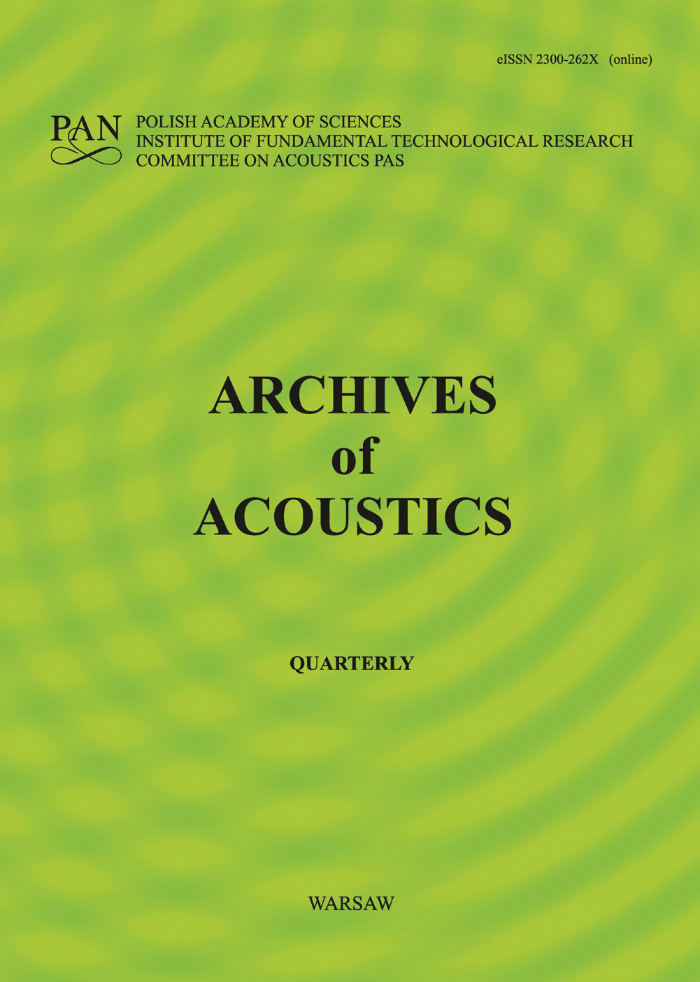Other articles by the same author(s)
- M. Kordus, A. Sęk, Monaural and binaural detection thresholds of amplitude modulation , Archives of Acoustics: Vol. 29 No. 4 (2004)
- M. Kordus, A. Sęk, J. Kociński, Binaural masking of amplitude modulation , Archives of Acoustics: Vol. 30 No. 1 (2005)


